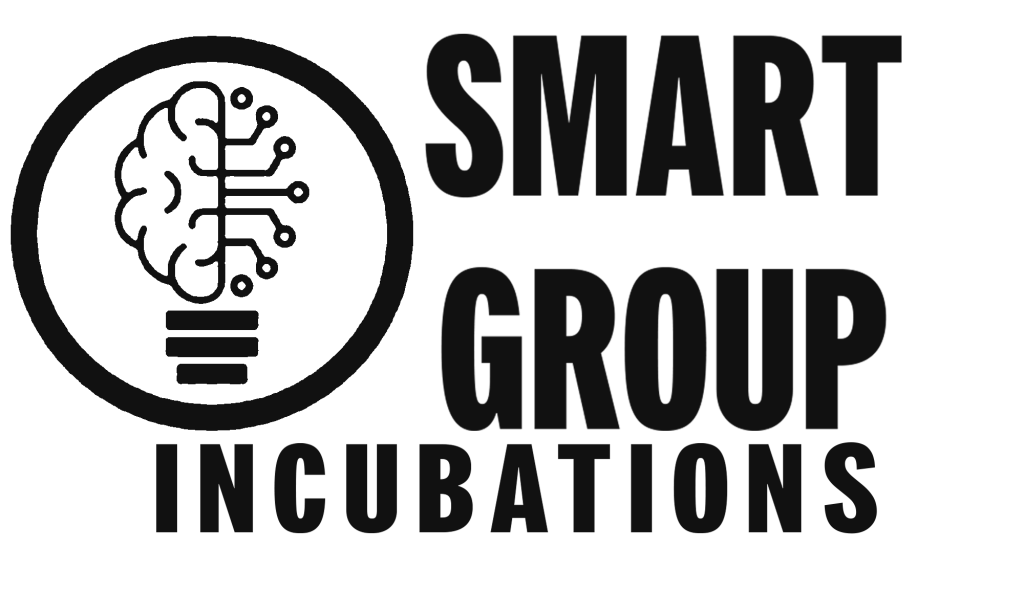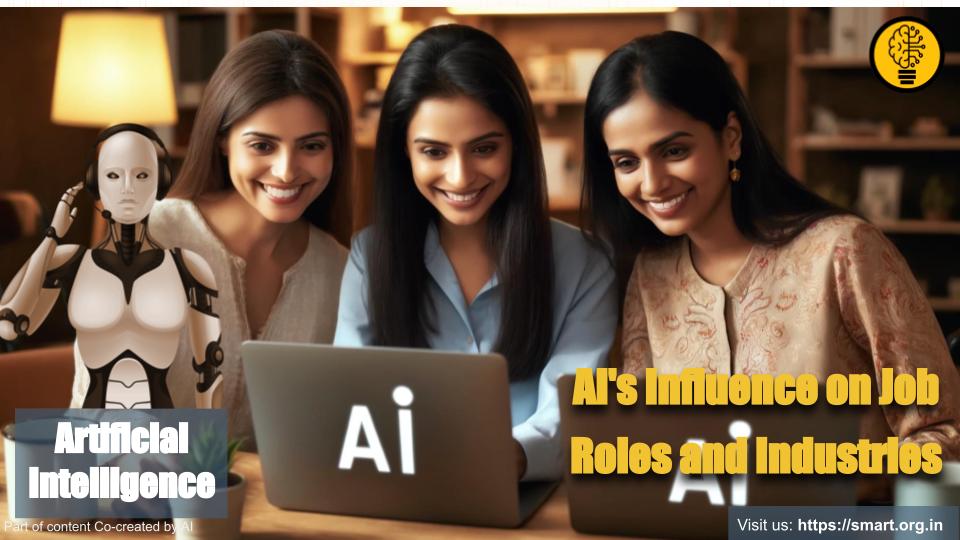Artificial Intelligence (AI) is no longer just a futuristic notion but a significant driver reshaping the contours of various industries and job roles. As AI continues to evolve, its impact on the workforce is profound. Catalysing changes that could redefine what work means in the future. This blog explores how AI is influencing job roles across various sectors. Discusses the responsible integration of AI technologies by enterprises to help startups navigate this new terrain.
Transformation Across Industries
AI’s influence is omnipresent, stretching across numerous fields, from healthcare to finance, impacting job roles and industry operations:
- Healthcare: AI technologies are being used to diagnose diseases more accurately and in less time than traditional methods. This not only speeds up the process but also allows healthcare professionals to concentrate more on patient care and less on diagnostics.
- Finance: AI is streamlining operations through algorithms that can analyze market data, manage risks, and provide financial advice. This automation is shifting job roles from manual data analysis to strategic decision-making and oversight.
- Manufacturing: With AI-powered robotics and IoT devices, the manufacturing sector is seeing increased automation in production lines. This shift is creating new roles for engineers and technicians who specialize in managing AI systems.
- Retail: AI is revolutionizing the retail industry by personalizing customer experience through data analysis and predictive algorithms. Shifting job roles towards more IT-centric positions focused on managing AI tools.
Job Creation vs. Job Displacement
While AI introduces efficiency and cost savings, it also poses challenges such as job displacement. However, it’s crucial to see this as a transformation rather than a reduction:
- New Job Roles. AI is creating new job categories in fields like machine learning engineering, AI safety engineering, and data compliance.
- Skill Transformation. Existing roles are evolving; for example, accountants are now learning to use AI tools for predictive analytics. Shifting their roles from traditional bookkeeping to strategic financial advisors.
- Lifelong Learning. Continuous education and re-skilling are becoming norms, emphasizing the need for workers to adapt to new technologies continually.
Challenges and Ethical Considerations (The Future of Work with AI)
Integrating AI into the workforce is not devoid of challenges and raises significant ethical concerns:
- Bias and Fairness: AI systems can perpetuate existing biases if not carefully managed, affecting hiring practices and workplace diversity.
- Privacy Concerns: With AI’s ability to process vast amounts of personal data, safeguarding employee privacy becomes paramount.
- Security Risks: As reliance on AI increases, so does the risk of cyber threats. Necessitating robust security measures to protect sensitive information.
Smart Group India: Pioneering Responsible AI Integration
Smart Group India stands out by helping startups leverage AI technologies in a responsible manner. Here’s how they are making a difference:
- Support for Startups: By providing resources, mentorship, and training. Smart Group India enables startups to integrate AI into their operations effectively and ethically.
- Promoting Ethical AI Use: They emphasize the importance of developing and using AI technologies that honor privacy, fairness, and transparency.
- Fostering Innovation: Smart Group India collaborates with regulatory bodies and tech communities to ensure that AI innovations align with broader societal goals and ethical standards.
Looking Ahead: The Future of Work with AI
As we look towards the future, the landscape of work and industries will continue to be dynamically shaped by AI. The key to thriving in this new era is adaptability:
- Workforce Readiness: Preparing the current and future workforce for AI integration through education and training will be crucial.
- Policy Development: Governments and organizations must develop policies that address the economic and social impacts of AI.
- Innovative Leadership. Leaders must embrace AI not just as a tool for economic efficiency but as an opportunity to enhance the quality of work and life.
AI’s influence on job roles and industries heralds a new era of work that requires a nuanced understanding and proactive management. By responsibly integrating AI, companies like Smart Group India are not only harnessing its power to drive innovation but are also ensuring that this technological evolution benefits society at large. As AI continues to evolve. it will inevitably bring changes that will redefine work in ways we are just beginning to understand.


In conclusion, we at Smart Group hope this article has provided you with valuable insights and actionable strategies. Smart Group India Incubation provides a nurturing environment for startups, offering comprehensive support and resources to foster growth and innovation. With access to expert mentorship, state-of-the-art infrastructure, and networking opportunities, startups can thrive in their journey from ideation to market launch. Explore our services in DevOps consultancy, IoT solutions, and cybersecurity to leverage cutting-edge technology for your business success. Join us to embark on a transformative journey towards entrepreneurial excellence. For further information and a deeper dive into this topic, we encourage you to explore the following resources. These links offer a wealth of knowledge and expert opinions that can enhance your understanding and assist you in applying these concepts effectively.
Startup Policies Govt. Of India
Startup News Sites
Publications
Research Papers